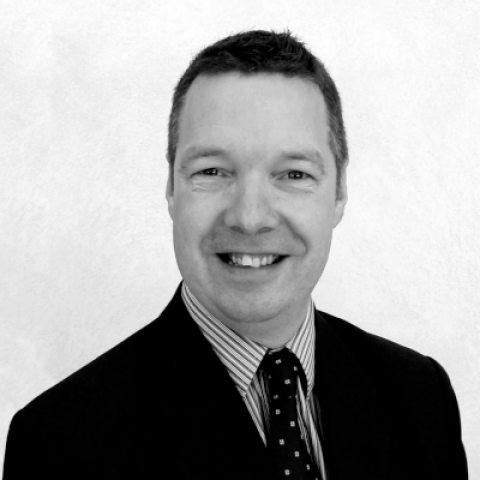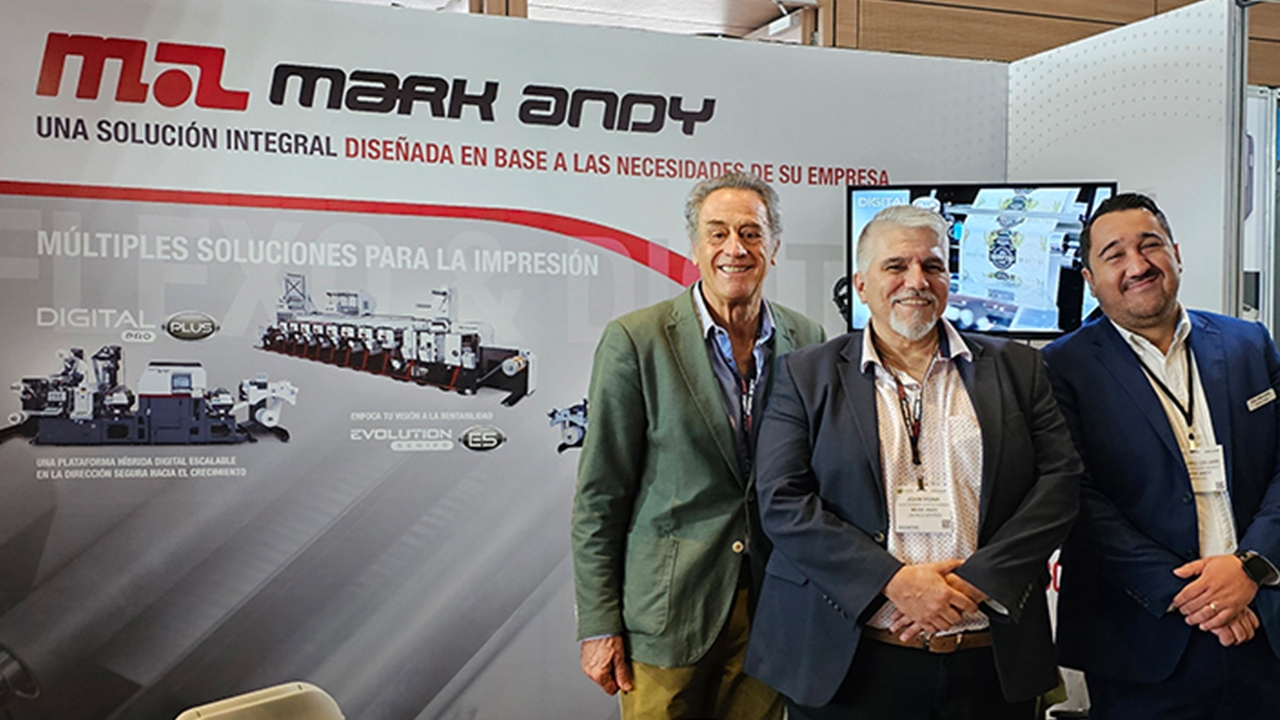Brazil Label Summit celebrates region’s growth
A lively conference program discussed issues ranging from Brazil’s tough new waste legislation to mergers & acquisitions and making global alliances. Andy Thomas, Danielle Jerschefske and James Quirk report
Label Summit Latin America 2011, which took place in Sao Paulo on May 17-18, attracted 720 delegates – the highest attendance ever at any Label Summit in the world. This was the fourth edition of the two-day conference and table-top exhibition in Brazil. Altogether 46 speakers took part in 13 sessions, while delegates were able to meet with 54 exhibitors from around the world.
This was the first Label Summit to feature live working machinery demonstrations, in this case an HP Indigo WS6000 digital press. Thomas Escariao of HP Indigo Brazil guided visitors through live demonstrations in the exhibition hall on both days of the event. The machine on display had been purchased by Brazilian converter MackColor.
The keynote speech was given by Jouko Lähepelto, senior vice president Americas and Asia-Pacific at UPM Raflatac – highly appropriate given Raflatac’s recent acquisition of Brazilian coater Gumtac.
Lähepelto pointed out that pressure sensitive label consumption in Brazil has grown from 1sqm per person in 2001 to 2-3sqm in 2010, with consumption growing at around 8 percent a year. The fastest growing sector is health and personal care, followed by variable information (VIP) labeling and beverages.
This is part of a global trend which is seeing PS growth shift massively towards developing regions. Lähepelto estimates that over the next decade 80 percent of global PS growth will come from emerging markets, and Latin America will average 5.7 percent growth a year.
Tackling the issue of price rises, Lähepelto the rise in raw material costs would more than match the growth rates of developing economies, and will continue into the indefinite future. ‘This is not sustainable, and means we have to innovate and continue to take market share from wet glue cut & stack.’
Eduardo Chede, president of ABIEA, explained the growth of PS label consumption in Brazil by Brazil’s extraordinary success in raising people out of poverty. A Federal taskforce set up by the government 18 months ago lifted 16 million people out of poverty, taking the total over the last decade to 46 million. ‘This means that the consumer market in Brazil has 46 million new people in it. That is more than the population of many countries.’
The mechanisms included fiscal reforms, the ‘family grant’ and compelling the banking sector to make loans available. ‘This means today the situation for PS is very favorable and will remain so for the next few years at least.’
Turning to the Brazilian converting industry, Chede said the last 18 months had seen a record number of narrow web presses including international models which had never before been seen in Latin America. At the same time, there has been significant investment in both the quality and capacity of Brazil’s coating industry.
For Chede, the biggest challenge faced by the Brazilian label industry is training. ‘If we are to continue to grow and expand into international markets we need to improve training all along the label chain, and this applies as much to executives as factory floor operators.’ ABIEA has already started its own training programs.
Jeffery Arippol, president of leading Brazilian converter Novelprint, said Brazil had come through the worst of the global economic crisis relatively unscathed and agreed that the PS industry is set for high levels of growth.
Later in the conference Arippol gave a more detailed presentation about trends in the local beverage market, where Novelprint has successfully transformed key beer brands using innovative PS technology. Ricardo Leonel Vieira of Owen-Illinois Brasil outlined the massive growth potential of the local beer label industry, citing Brazil’s low per capita consumption compared to neighboring Argentina.
But Arippol said Brazilian converters also face major challenges, dealing with new solid waste regulation (see below), and passing on raw material price increases. ‘We are squeezed between powerful clients and suppliers and it’s not easy to keep our margins. We need to both pass on price increases and become more efficient.’
Acquisitions or partnerships?
Ricardo Ribeiro of Brazilian consultancy Asterisco Consultoria e Participacoes gave an excellent presentation about mergers and acquisitions. The top ten converters in the Brazilian label industry account for a 28 percent market share, with a fragmented mass of some 1,000 printers covering the rest. Therefore, argued Ribeiro, mergers and acquisitions should be considered as ways to strengthen capabilities and compete for a greater share of the market.
Outlining the major acquisitions in the Brazilian label market in recent years, he cited the examples of CCL’s 2006 acquisition of local converter Prodesmaq, which is on course to provide a return on investment three years earlier than forecast; and the joint venture between Fedrigoni Group and Gafor, to create Arconvert Brasil, which has yielded an eight percent market share in two years.
Two converters with experience of working with converters outside their own countries – Iban Cid, president of Spanish converter Germark, and Fernando Gabel, managing director of giant Brazilian converter Baumgarten – took up the discussion. Gabel stressed that sales agreements were often an overlooked aspect of a partnership, which need not necessarily be based around exchange of technical information.
The CEO Analysis on Leadership session brought together an international panel of leading label converters: Aldo Gonzalez of Cameo in Chile; Luis Maria Garcia of Multilabel, which has operations in Argentina, Brazil and Mexico; Jaime Yoshiyama of Kuresa in Peru; Fabian Silva of Etiquetas Anro in Mexico; and Iban Cid of Spanish converter Germark.
As well as answering general questions about the challenges of leading a company, each panelist also focused on their individual experiences: Luis Maria Garcia spoke about the challenges of leadership across different countries and cultures; Jaime Yoshiyama discussed management during a company’s expansion; Fabian Silva outlined the challenges of working in a family-run business; Aldo Gonzalez spoke of team integration during and after the merger and acquisition process; and Iban Cid discussed his experiences of running European association Finat and Spanish association Anfec. The transcript from the CEO panel session will be published in L&L issue 4.
Continuing the global theme, Gallus CEO Klaus Bachstein summarized new European legislation on pharmaceutical and food labeling, which converters throughout Latin America. ‘Good manufacturing practice will become a fundamental necessity for the label and packaging converter,’ he said. ‘A standardized way of manufacturing is not only a European demand, but a global one. Brand manufacturers and retailers will require printers to meet these demands, or business will be taken elsewhere.’
Aislan Baer of consultancy ProjetoPack Group spoke of the opportunities available to narrow web converters in the short run flexible packaging market. Examples include bathroom products for hotels –in Brazil the hotel and hospitality industry is growing 81 percent - or domestic airlines, as 70 million people a year now travel on internal flights. ‘In the private label market, runs are generally smaller, and 13 percent of new label launches in Brazil are through private labels,’ said Baer. Jaime Dagnino of MPS confirmed that 70 percent of the presses the company sells in the region ‘are flexible packaging oriented’.
Environmental pressures
The Brazilian government’s recent National Policy on Solid Waste (Politica Nacional de Residuos Solidos a.k.a PNRS) enacted in August of 2010 has become a pressure point for the local label industry. The policy was discussed at the label summit in both the Labeling Materials session and the Environmental Priorities session.
The purpose of the PNRS is to develop the recycling industry in Brazil with legislation that is as strict as that in Europe. It puts responsibly for collection and re-use of waste on the company that produces the waste, but also seeks to tie each level of government – federal, state and local – and private firms into a ‘reverse logistics’ system to manage the recovery and re-use of solid waste. Currently the country’s waste collection systems are highly fragmented.
Industry leaders from Ritrama, Ahlstrom Brazil, Colacril Auto Adesivos Parana and Henkel USA addressed these issues in a panel which also considered the development of thinner films and linerless developments. All participants agreed on the need to find viable alternatives for liner waste, diverting it from incineration and landfill, and the new Brazilian legislation has focused attention on how this is to be achieved over a short timescale.
Felipe Soto, Ritrama, spoke for all panel members when he said: ‘Globally, we must look at the self-adhesive label chain in its entirety and evaluate how to collect products at all of the points of disposal.’
Valdir Arjona Gaspar, president of Colacril, said: ‘The life cycle of the materials we use must be sustainable and we must know where the waste is going. The logistics chain needs to be well-studied.’ He explained that Colacril is at the second stages of testing a full life-cycle solution for the recovery of filmic liners which are reprocessed into new liner or facestock, something it had been working on in anticipation of the solid waste law. The company hopes to introduce the liner recovery project to the market in 2012. It will provide customers with a certificate for the recycled content of the material.
Luciano Neves, sales director for Ahlstrom Brazil, stressed the importance of overcoming recyclability issues pertaining to the removal of adhesives and silicone, and pointed out some environmental benefits to using paper liner versus filmic liner, such as the bio-degradability of tree fibers. A sometimes heated debate with enthusiastic audience participation showed the scope of problems to be solved and research to be done to implement the PNRS.
The potential for linerless labels came up as a question from the audience. The panel appeared to agree that the technology is great for niche markets, but is not the answer for the broader industry sectors. Ingrid Brase, market segment director for Henkel USA, said: ‘It will not take over the world market, but linerless will find its place in the market. Later in the Summit, Jeffery Arippol said his company is now working on a linerless label and applicator system.
Karina Spina of Celulose Reciclada talked about her company’s successful recovery of paper liner from a number of Brazil’s leading brand owners. It appeared that a good number of the summit’s attendees were not familiar with the liner recycling firm, yet were eager to discuss cooperation with Spina after her presentation.
Celulose Reciclada has a current capacity of 1,000 tons. It is installing a new system by the end of the year that will increase capacity by another 1,000 tons. The company has a main storage facility in the center of Sao Paulo where material can be delivered. It will then move the material from the city to its plant located just outside Sao Paulo. The cost to work with Celulose Reciclada is estimated to be less than current waste pick-up fees.
Danilo Pereira Silva, quality and environmental manager for AmBev BSA Rotulos Sao Paulo, talked about the benefits the international brewery has found since implementing its own environmental management system. Silva said the company’s mission statement is to be the ‘largest beverage in company in a better world’. He encouraged local converters to be more proactive in their sustainability efforts and said he is looking forward to working more closely with the label industry in joint projects to reduce waste.
Label Summit Latin America will take place in Guadalajara, Mexico, in 2012, and returns to Brazil in 2013.
Pictured: The keynote speech was given by Jouko Lähepelto, senior vice president Americas and Asia-Pacific at UPM Raflatac
Click here for more stories about Label Summit Latin America on L&L.com.
Stay up to date
Subscribe to the free Label News newsletter and receive the latest content every week. We'll never share your email address.


